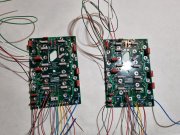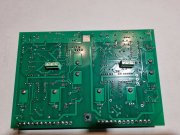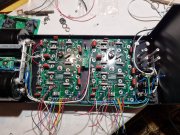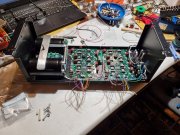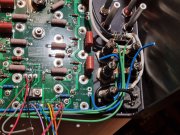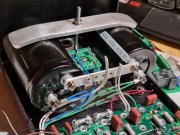MarkWComer
Veteran and General Yakker
- Joined
- Nov 1, 2014
- Messages
- 3,520
- Location
- Gaston, SC
- Tagline
- Victim of the record bug since age five
You elevated a few caps above the board. Not wrong, but unusual. I assume for heat dissipation? I elevated the high wattage resistors a bit on my builds for this reason because of the obvious heat damage on the original control circuits. This may be moot, did it regardless. I think I did this on the emitter resistors as well, don’t recall precisely.



